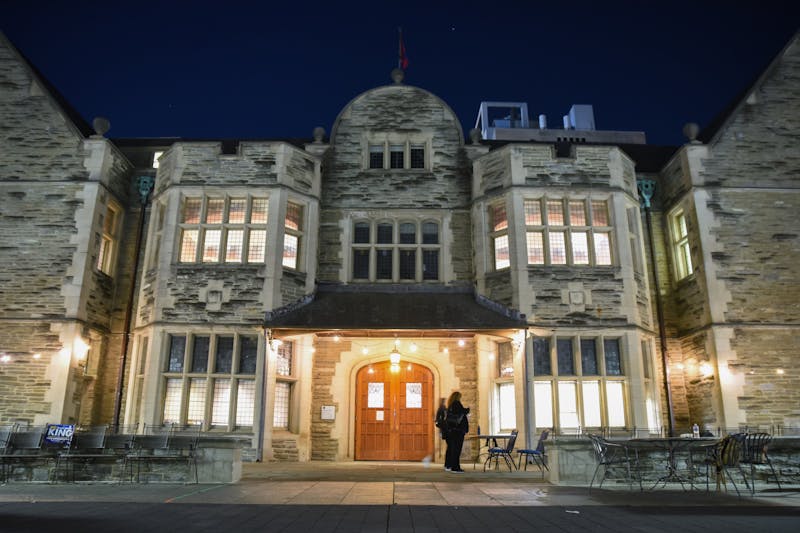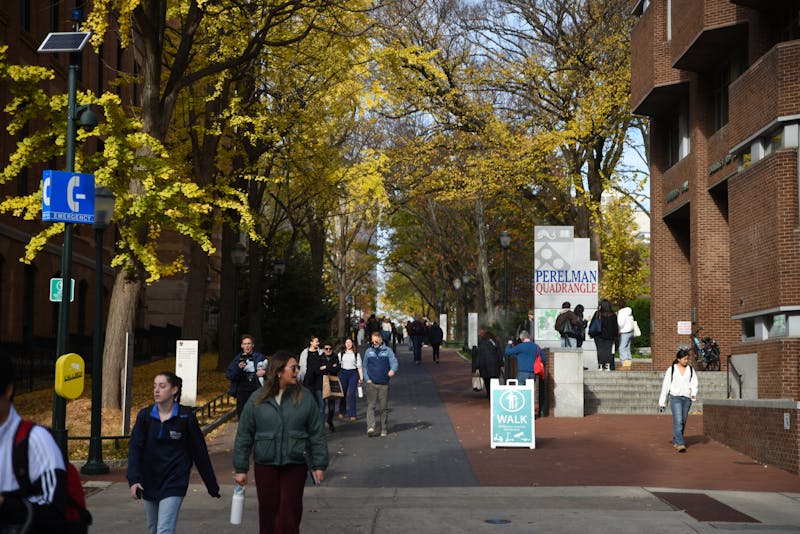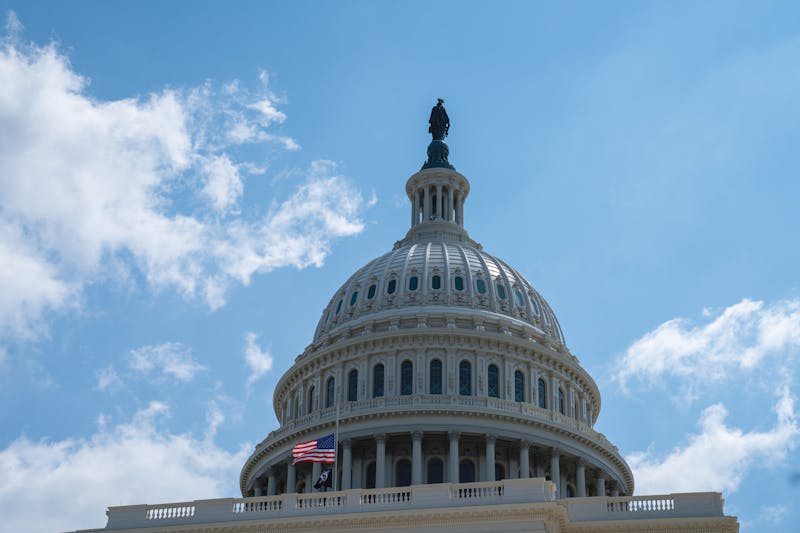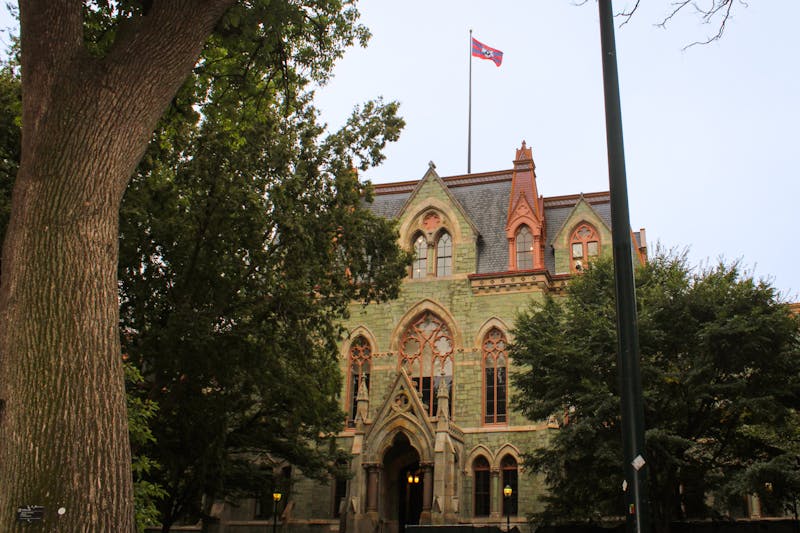
Penn’s Undergraduate Assembly passed a resolution calling on the University to formally disclose its investments and initiate a review of its securities in external funds on Sunday.
The resolution — which passed by a 16-5 vote at the Jan. 26 general board meeting — comes after months of increased discourse surrounding the disclosure of University finances. The resolution is addressed to the Office of the President, the Office of the Provost, the University Board of Trustees, and Penn’s Office of Investments.
A UA spokesperson wrote to The Daily Pennsylvanian that they could not currently comment on the matter. A University spokesperson did not immediately respond to a request for comment.
“The University of Pennsylvania’s Undergraduate Assembly, in turn, demands full transparency from the President’s Office, the Provost’s Office, the Board of Trustees of the University of Pennsylvania, and the Penn Office of Investments around the specific investments and securities held by the University, fostering accountability and ensuring alignment with the values of the University community,” the resolution read.
According to the UA spokesperson, the resolution will be delivered to College Hall on Monday morning.
The resolution also stated that “transparency in investments is a step toward ensuring that the University’s financial resources are not supporting industries or practices that conflict with its commitment to sustainability, diversity, equity, and inclusion.”
Several members at the meeting expressed concerns about the public nature of the voting record, suggesting that their votes regarding the resolution could be interpreted within a political context that would threaten their safety. While the group voted to conduct the vote via secret ballot, the measure failed, and the vote was conducted publicly via roll call.
“While I do think it’s important that the public can see how we vote, I think that for a lot of people, there’s issues of safety or security, especially international students whose place here is uncertain, people who are more at risk than others for having opinions in this country,” a UA member said during the meeting.
During the meeting where the resolution vote was called, several members expressed their opinions on the matter.
“I think we know that realistically, even if this has administrative support, this is not going to be approved by the [University],” College sophomore and UA College representative Ben Woods said at the meeting. “I would bet the entire endowment that they’re gonna shoot this down. So this comes down to a statement by the UA. It’s not creating any sort of action, it's just a statement in itself.”
Woods added that he thought the passage of the resolution would be “a political statement” related to the ongoing Israel-Hamas war.
“I think if we push this, we have to ask ourselves: What other political issues do we want the UA to step in and talk about? And do we want to jeopardize our legitimacy by continuing to comment and make statements on political matters?” Woods said.
Wharton junior and UA Vice President Michelle Chen disagreed with Woods’ characterization of the resolution as political and characterized the proposal as “nonpartisan.”
“Even though there is underlying reasoning that sprouts this statement to be made, there isn’t any political lingo,” Chen said during the meeting. “There’s nothing alluding to the [Israel-Hamas] conflict at all in this statement.”
College and Wharton sophomore and UA College representative Yaduraj Choudhary said at the meeting that while he thinks it is a “good idea to ultimately have some sort of disclosure,” he had concerns about how disclosure surrounding the investments might impact Penn’s finances.
“I think it’s a risk to the University’s investments, to the return on these investments, and the competitiveness relative to other higher education institutions, simply because these are held by other mutual fund managers, and if we sacrifice that confidentiality, they might not be willing to work with Penn to have those investments,” Choudhary said.
The pooled investment vehicle for the majority of Penn’s endowment — which totaled $22.3 billion as of June 2024 — is called the Associated Investments Fund. AIF holds investments in several types of assets, including short-term, equity, private equity, and real assets.
The fund is overseen by the Penn Office of Investments and managed according to policies established by the Investment Board, which is appointed by the Board of Trustees. The current Investment Board consists of six Penn alumni along with Interim Penn President Larry Jameson and Board of Trustees Chair Ramanan Raghavendran as ex officio members.
In spring 2024, the Gaza Solidarity Encampment — which lasted for two weeks on College Green — called on Penn to divest from “corporations that profit from Israel’s war on Gaza and occupation in Palestine,” disclose its financial holdings under the Associated Investments Fund, and defend Palestinian students.
In a referendum organized by Penn’s Muslim Students Association and circulated in April 2024 by the Nominations & Elections Committee, MSA surveyed students on whether the Board of Trustees should publicly disclose all investments held through the endowment fund. 73.4% of voting students were in favor of disclosure, while 26.6% were against it.
22% of the undergraduate student population voted on the referendum, which also asked whether the University should divest its endowment fund from companies and organizations that “profit from, engage in, or contribute to the government of Israel’s human rights violations.”
The Daily Pennsylvanian is an independent, student-run newspaper. Please consider making a donation to support the coverage that shapes the University. Your generosity ensures a future of strong journalism at Penn.
Donate











